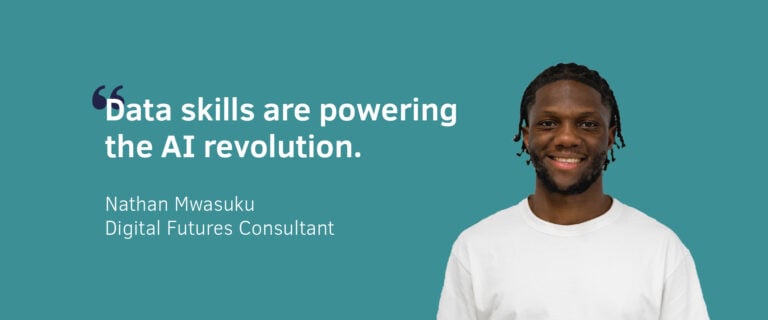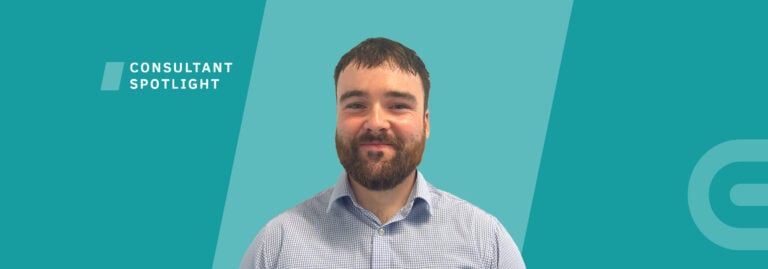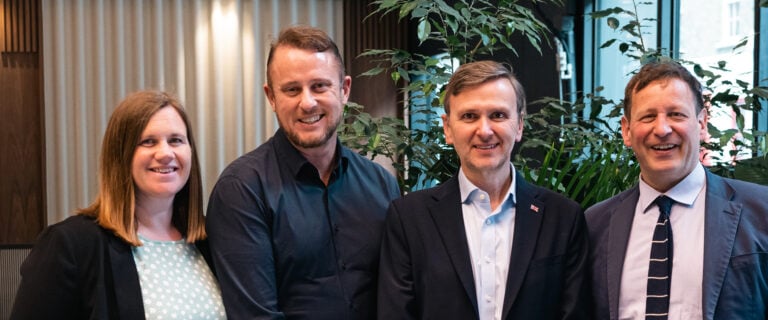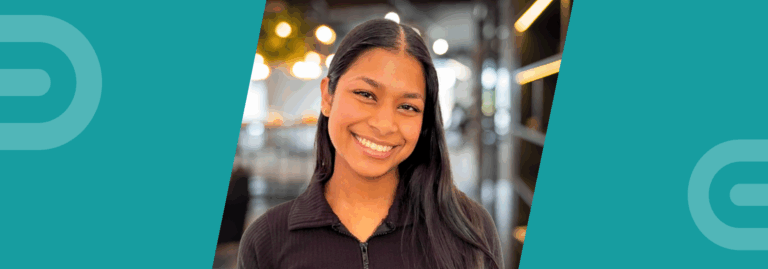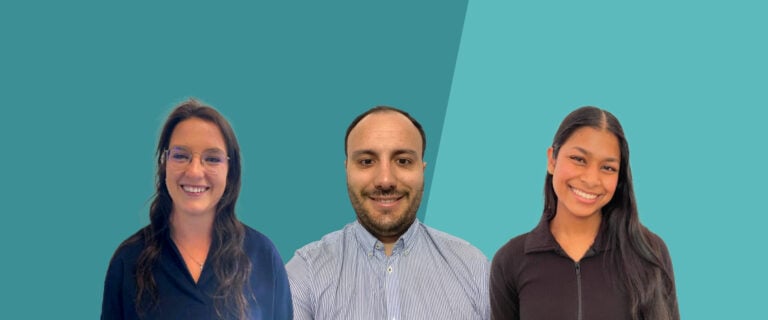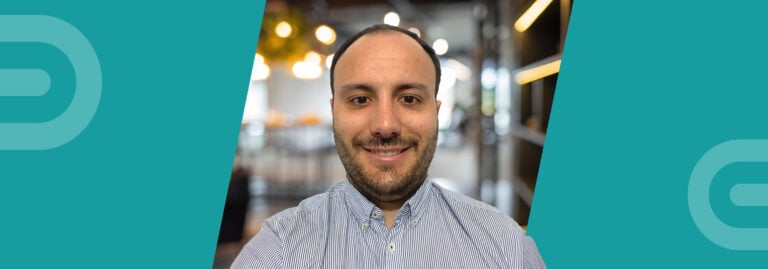We caught up with Natalie Welsh, our Industry Engagement Lead, to discuss the Digital Futures Academy programme, as well as sharing some key insights about the culture of Digital Futures.
Tell us a bit about yourself and your journey to where you are now?
I went to the London School of Economics and studied Geography there. When I left university, I didn’t have a lot of direction, but I knew I wanted to work in Financial Services and I took a role on a graduate programme at an inter-dealer brokers and spent five years working there on the trading floor. I really enjoyed that role, but ultimately, I knew that it wasn’t what I wanted to do for the rest of my life, so I started to look for other opportunities.
I then joined Parker Fitzgerald in a Business Manager role – I knew that I wanted to work in a fast-paced and focused environment, and I saw the opportunity to grow there. The company itself was growing and that really motivated me, and I also instantly believed in the vision and ambition of the firm. What I really loved about the role was being a part of a team that worked together towards one common goal – and being the underdog in a competitive market meant that every win was a real achievement we all celebrated together.
When I was offered the opportunity to join Scott Vincent (our Founder & CEO) at Digital Futures, I took it immediately. I saw it as a real opportunity to do things differently. Whilst my experience in previous roles has stood me in good stead, there’s lots of things about operationally running companies and supporting people to achieve their best that I’ve always felt could be done differently and I see that we have a chance here to do that.
What are your day-to-day responsibilities at Digital Futures?
As the Industry Engagement lead, I am responsible for all academic and industry partnerships in the UK. In my role, I also oversee our marketing efforts focused on the amplification of our brand and driving talent acquisition.
What is the culture like at Digital Futures?
I would describe our culture as dynamic and based on trust. It’s really important to me that everyone who joins the company is treated as an individual and is given the responsibility and autonomy to make their own decisions. It’s important that we all trust each other to do the right thing and get things done.
There are things that underpin that, such as communication and outstanding delivery but ultimately, it comes down to teamwork and a drive to succeed. We want to abolish old ways of thinking in the workplace, such as holiday allowance or monitoring people’s time, and allow people to be able to manage their own time and work flexibly, so that their job fits in with their life. I think this is particularly important for people who have families, because it makes it easier for people to juggle their workload and home commitments, without their career taking the back seat.
What motivates you in this role?
The world is changing very quickly, and we have a real opportunity to be part of that change and to help young people shape the future of their careers. We want to show that there is a way into industry that is open to everyone by creating a pathway for talented and motivated individuals from all backgrounds.
By focusing our offerings around digital transformation we can help both individuals and our clients to manage some of the challenges they face during this period of change. I believe that the offering we are developing will have a real impact to support companies to remain relevant in the digital age, and for continued and inclusive employment for the future. I think the way companies have responded and adapted very quickly to recent events, shows that change is possible, but on larger scales, that does need support, and Digital Futures aims to be part of the solution and the future.
What does the Digital Futures Academy programme offer?
The training and the curriculums we are building will be very bespoke to the role our trainees are going into, so those applying to the Academy programme will be given the correct and relevant skills that they need to perform the role to the best of their ability. It bridges that gap between leaving university or being in the job market and landing on day one. We’re also going to focus on the soft skills that you don’t necessarily learn in university and it gives you a bit of a flavour of what the world of work will be like. One of the other draws as a candidate is that not only are you supported during the training, but you’re also supported during your placement, so you’ll always have the support from Digital Futures in your early career.
What advice would your younger self in your early career?
I think the advice that I would have given myself is to believe in yourself and what you are doing. It can be very daunting at times, when it appears that everyone else is more experienced or qualified, but you can always find the answer out. Follow your intuition, have dedication, and apply yourself.
I have worked in many male-dominated environments, and sometimes as a female you have to work harder to get your voice heard. Having courage, speaking up and believing in your own skills has been key to success for me. It’s important that you recognise that everyone in the workplace is equal, regardless of gender, race or background. Once you have earned your seat, work hard, take opportunities as they come and most importantly, have fun.


